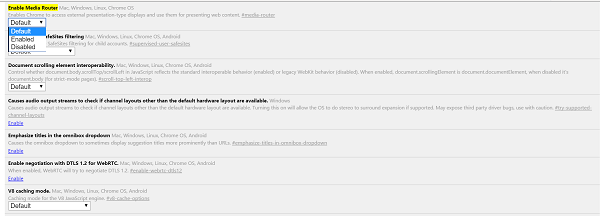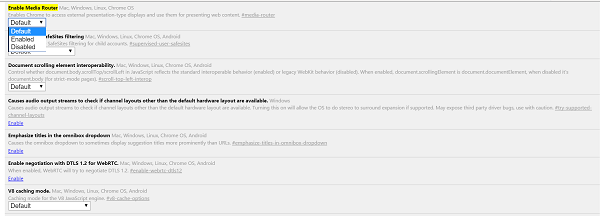Enable Extension-free Casting in Chrome
Open your Google Chrome browser, right-click an empty area on the page you want to cast on your TV screen, and select the “Cast…” option from the context menu, or you can click the button added to the Chrome Toolbar.
For enabling this feature and trying extension-free casting in Google Chrome, you need to use a Beta, Dev, or Canary build of the browse for the moment and manually enable the experimental “Media Router” flag from the Chrome Flags page. If you are using the browser’s beta version, you will notice the feature is not enabled by default since it is currently in testing mode. Type the following address and enter it into the URL/address bar of the browser and hit Enter: Select ‘Enabled’ in the drop-down menu. Relaunch the browser when prompted. If you have any Google Cast extension installed in your browser, it will be disabled, and the new media router version will add a ‘Cast‘ icon to the Chrome toolbar once you relaunch Chrome. The extension can be removed whenever you would like to. Beginning now, you can use the new “Cast…” menu item listed in the right-click context menu to stream the browser contents to a Cast-equipped device. The feature will likely go live in the stable version of the browser. In all, it’s a good move to add support for Chromecast into the browser to help users make the streaming setup process easier and faster. Now see how to Cast Media to Device in Edge browser on Windows 10.
Can you cast anything from Chrome?
Chrome Cast feature allows you to project anything to an intelligent device that can stream videos from an external source. The option is available in the Menu and once you are sure what you want to project, use that option, and your screen will be visible on the TV. Make sure to check if your TV can accept cast connection.

